The team and the idea
Hi! I’m Aarushi and that’s Ken. We’re Year 13 students at JESS. We decided to tackle water scarcity in the UAE by writing a research report with specific recommendations for what we can change, based on the data.
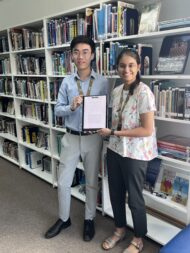
How we came up with it
We’ve done projects on maths modelling before, where we analysed big data sets to find patterns and make predictions. When I started working with Roots and Shoots to introduce sustainability initiatives at school, I realised we could apply these skills to a real environmental issue in our own community!
What we did
We used maths, programming and conducted a literature review to analyse water usage patterns in the UAE and come up with a set of school and national-level recommendations for change. We explained our findings in a 25-page academic paper, which you can freely access and share!
We did this project independently and are now working to implement our findings at school.
The data
We used two main datasets for our analysis: our school’s irrigation data (from our water sensor) and national-level water consumption data from the United Nations database. This allowed us to quantify patterns at both the local and national level.
Why this research is important
Water wastage and inefficiency is a MASSIVE problem in the UAE. Our groundwater resources are scarce, per capita consumption rates are increasing and UAE desalination accounts for no less than 5 billion kg of carbon dioxide emissions every year!
None of this is sustainable in the long term.
It’s so important to understand what the data tells us so that we can make informed changes. We’ve summarised our findings below. We hope they’ll help your school take effective action, just like us. Let’s tackle water scarcity together!
Our research and findings
A quick summary of all the important bits – and specific steps you can take!
Research methodology
- Statistical modelling with Python and Prophet (a predictive model developed by Facebook)
- Used models to predict water consumption levels in the next few decades
- Literature review (strategies for saving water, including behavioural science)
- Formulated recommendations based on the data!
Some shocking findings!
The UAE gets most of its drinking water from thermal desalination, producing 5 billion kg of CO2 every single year. Based on current trends, this’ll increase to 5.8 billion kg/year by 2030 (for perspective, the average UAE resident would take about 170,000 YEARS to produce this amount!) That’s the equivalent of having an extra 174,000 cars on the road.
What can schools do?
- Install water-efficient tap aerators. These can reduce daily usage by 8-18%!
- Adjust irrigation times to early mornings or late evenings, especially during summer. Our school’s water usage peaks during summer because the field is watered at midday. This doesn’t benefit the grass as much and wastes a lot.
- Review the programs used for automatic sprinkler systems. We often over-water!
School League Tables
We recommend introducing a national system for schools to report their water and electricity usage. This information would be organised into a regularly updated league table, creating a sense of friendly competition that pushes everyone to do better. Our review of behavioural science studies shows that this approach could be highly effective – find out more in section 4.1 of our water report!
National-level recommendations
- The creation of a system to provide grey water to homes, schools and businesses (to use for irrigation, cleaning etc)
- Improving infrastructure for wastewater recycling, so we can cut back on fossil fuel-powered desalination
- Trials of renewable (e.g., solar) desalination techniques
- Implementing targeted behavioural campaigns and adopting comparison and competition based techniques to incentivise water saving.
You can read our full report here.
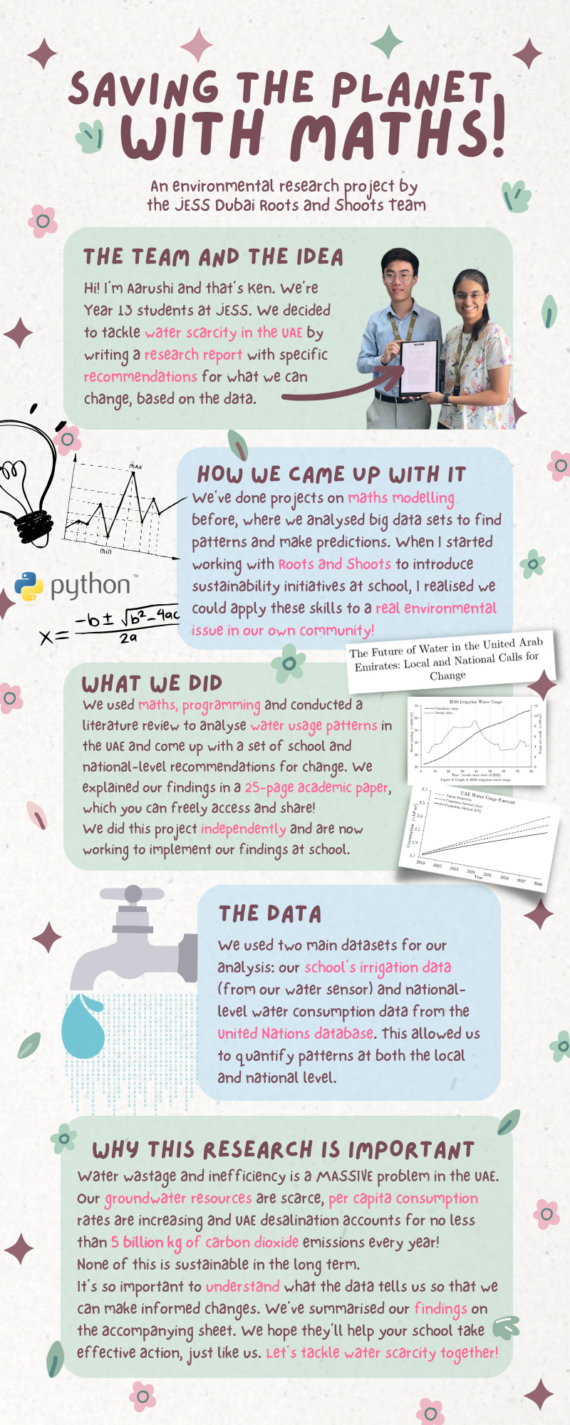
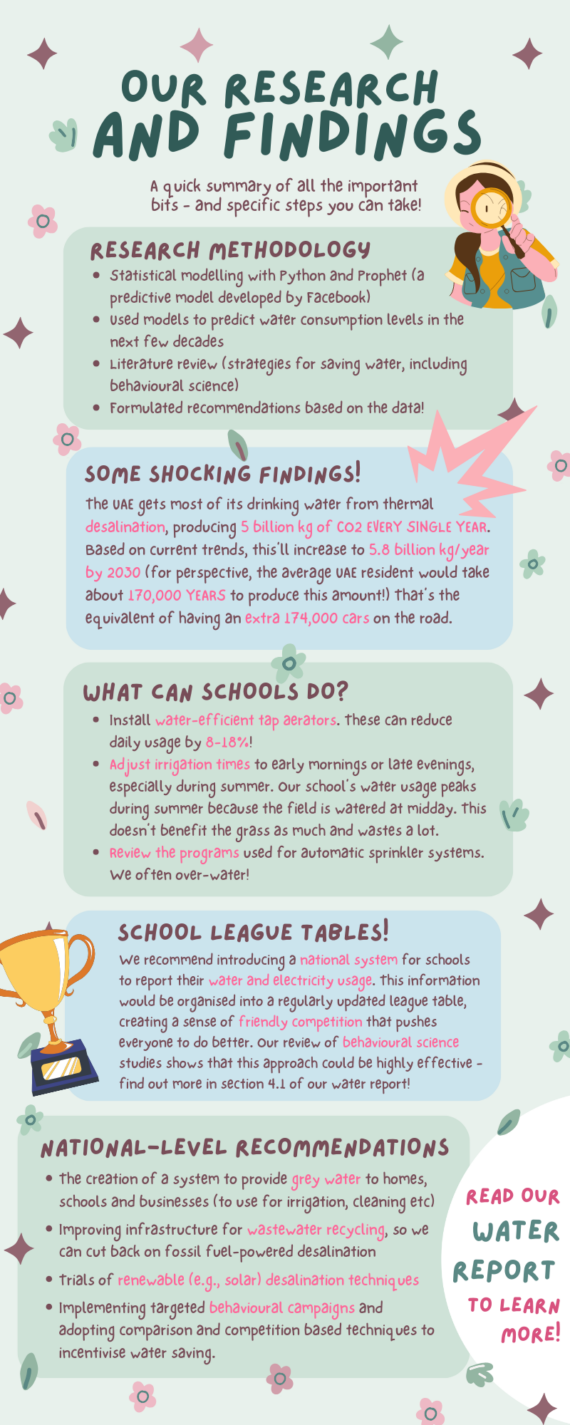

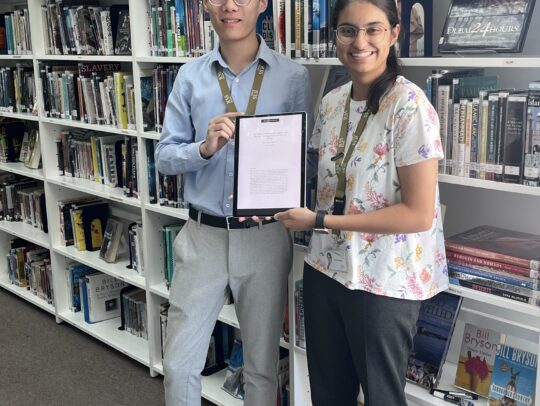
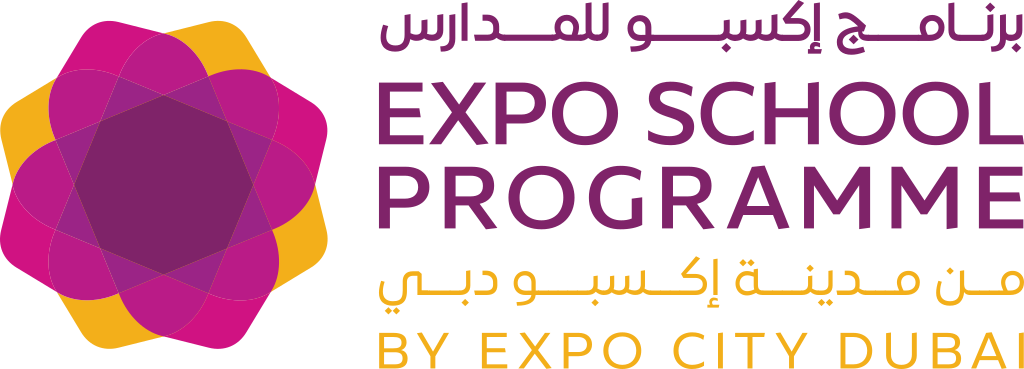







Follow R&S UAE